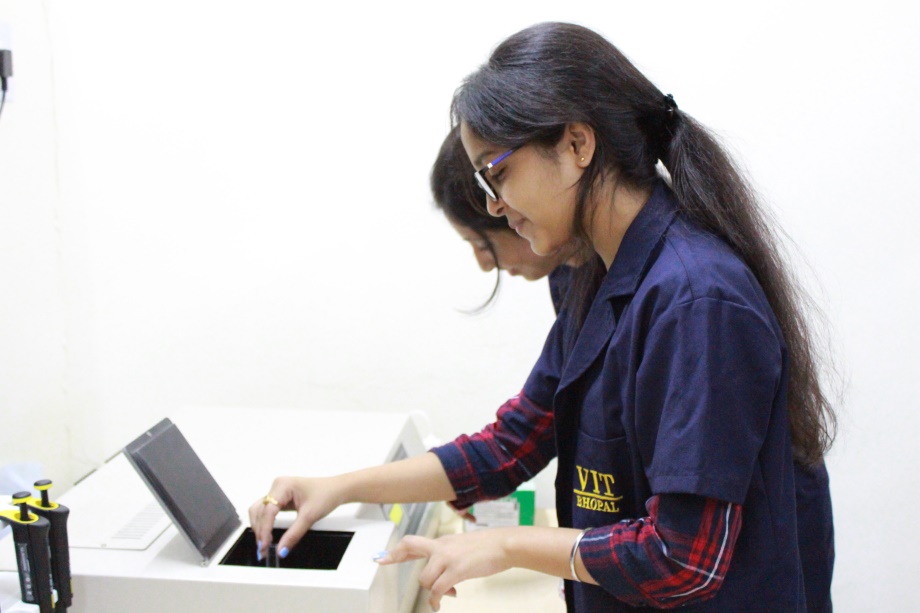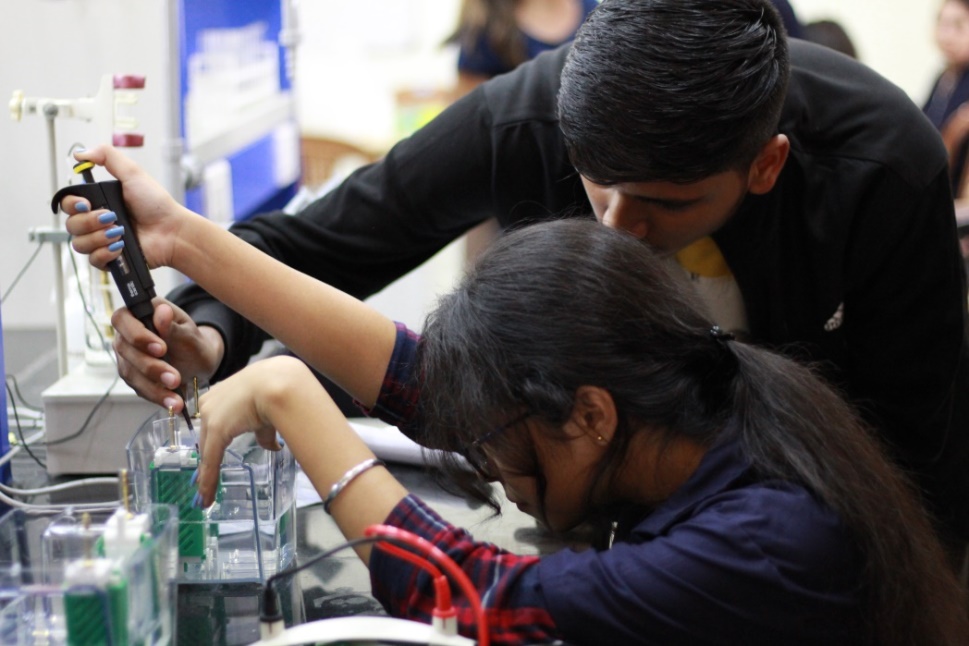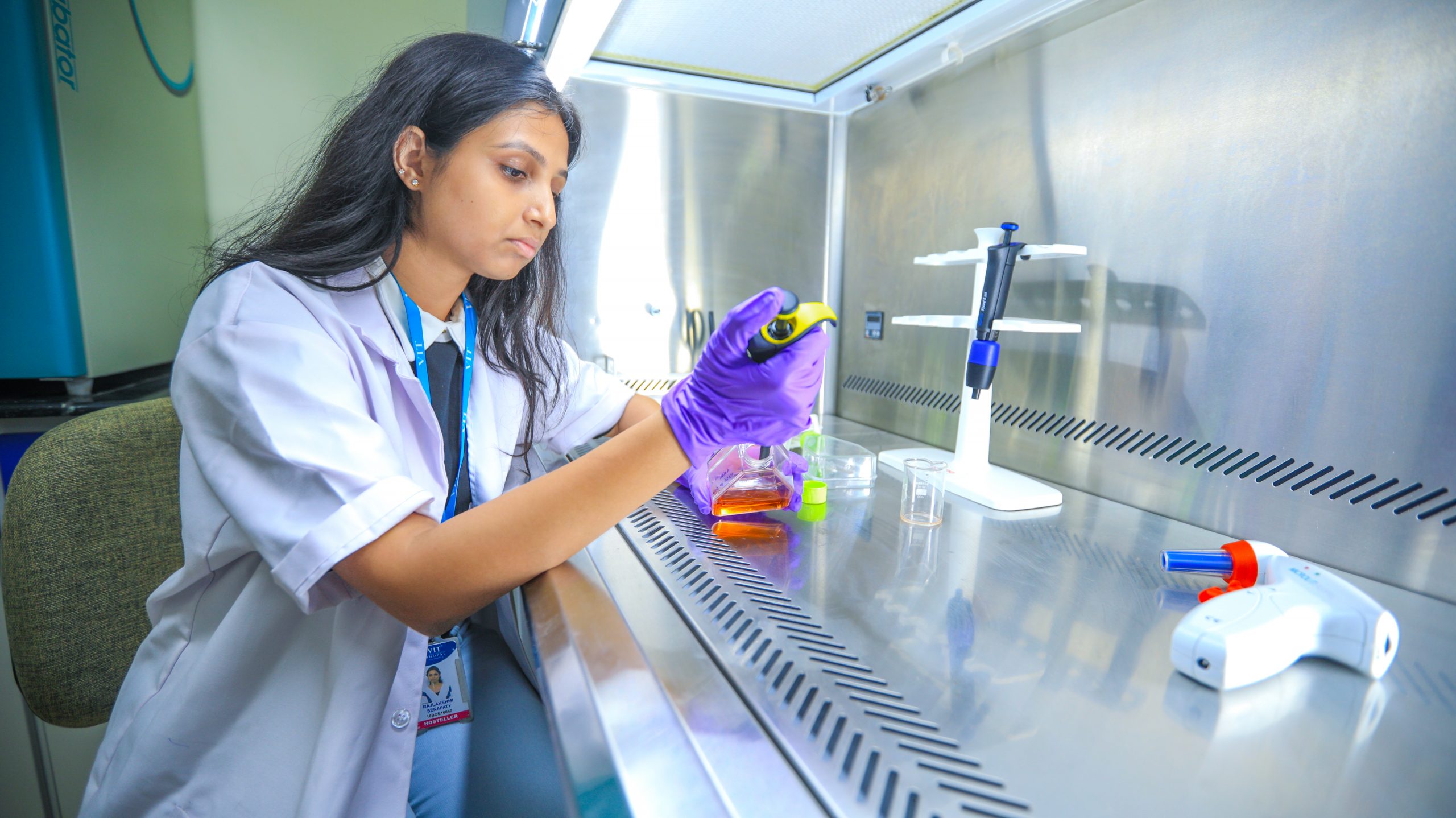Curriculum Highlights
- Human Physiology
- Computational Biology and Analytics
- Signals and Systems
- Biosignals and image processing
- Molecular Biology and Genetic Engineering
- Bio-fluid Mechanics
- Biosystems and Control
- Introduction to Bioengineering
- Physiology of Cells and Tissues
- Cell and Tissue Culture Techniques
- Bio-inspired Designs
- Electric Circuits and Systems
- Analog Circuit
- Biomecahnics
- Biomaterials
- Tissue Engineering
- Immune engineering
- Stem Cells and Regenerative Medicine
- Biomedical Instrumentation
- Biosensors and MEMS
- Biosafety Bioethics and IPR
Programme Outcomes

After the completion of the program, the students will be able to
- Apply interdisciplinary knowledge of mathematics, science, and engineering.
- Design and conduct experiments, as well as analyze and interpret data.
- Identify, formulate, and solve engineering problems.
- Gain knowledge of contemporary issues.
- Use the techniques, skills, and modern engineering tools necessary for engineering practice.
-


Career Options
• M.Tech
• M.S.C
• PhD
• Medical Coder
• Junior Scientists
• Application Scientists
• Quality Controllers
• Clinical Engineers
• Rehabcare Engineers
• Bioinstrumentation Engineers
• Biological Data Analyst
• Biocare/Biotech Entrepreneurs
• Pharmaceutical Engineering
-


Careeer Prospects
- Research and Development
- Quality control
- Bioinstrumentation engineer
- Clinical engineers
- Medicals coders,
-Biological data analyst


